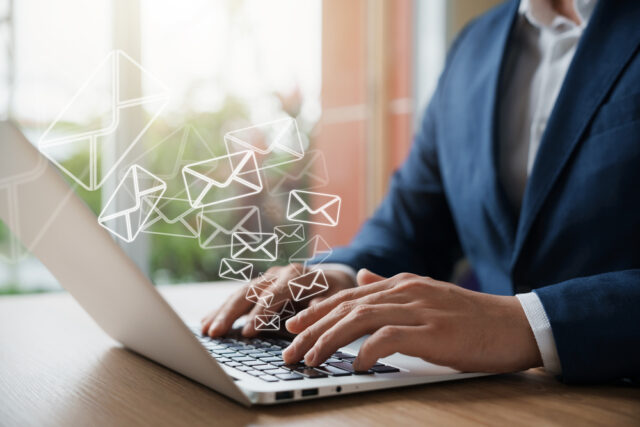
Electronic communication, whether by email or text, is by its very nature pretty instant. So when you receive a new message the temptation is always to respond to it straight away.
The trouble with that is the people you’re communicating with come to always expect a quick reply. We spoke to stress management expert Julia Arndt at Peak Performance Method to discover why not responding immediately could well be better for your stress levels.
BN: Why is it vital to set boundaries when responding to electronic communications?
JA: Setting boundaries is essential for protecting your mental space. When you constantly respond to emails immediately, you are reinforcing a reactive mindset, always at the mercy of others’ demands. This habit makes it difficult to stay focused on your own priorities and leaves you feeling on edge throughout the day. Without boundaries, you’re essentially giving away control of your time, which leads to stress and exhaustion.
By setting clear limits around how and when you respond to emails, you regain control over your day. You can prioritize your tasks and allow time for deep, focused work. This improves your productivity and helps maintain your mental well-being. Constantly reacting to emails, on the other hand, creates a cycle of distraction that leaves you overwhelmed. Establishing boundaries is a key way to avoid this.
BN: Increasingly employers expect staff to respond to emails outside work hours, why is this harmful?
JA: The expectation of being ‘always on’ is incredibly damaging. When employees are expected to be available after hours, it blurs the line between work and personal life, making it impossible to fully switch off. This constant connection prevents people from recharging and leads to burnout over time.
Not taking time away from work has long-term effects on your productivity and well-being. When you’re always thinking about work, you can’t rest or recover. Over time, this reduces your ability to focus and problem-solve, making you less effective at work. Employers who expect staff to be available 24/7 might believe they’re getting more productivity, but in reality, it leads to higher levels of stress and diminished job satisfaction. Disconnecting outside work hours is crucial for maintaining both mental health and long-term productivity.
BN: Should you use an autoresponder to establish a timeframe for responding and manage expectations?
JA: Absolutely. An autoresponder is a great way to manage expectations and protect your time. By setting up a simple message that outlines when you’ll respond, you reduce the pressure to reply instantly. This also communicates professionalism and shows that you have a clear structure for your workflow.
People often appreciate knowing when to expect a response, and it reduces any frustration on their part. Plus, it gives you the freedom to focus on more important tasks without constantly feeling interrupted by new emails. You don’t have to feel guilty about not replying right away because you’ve already set clear expectations. Autoresponders are a simple but powerful way to reduce the stress of constant communication.
BN: Does responding more slowly make for better decision making?
JA: Yes, responding slowly allows you to make better, more thoughtful decisions. When you take the time to reflect on a message, you avoid knee-jerk reactions and emotional responses. Slower responses allow you to consider the full context, gather any necessary information, and craft a more strategic reply.
Quick responses can lead to mistakes or miscommunications, which can create even more stress. By delaying your reply, you give yourself the opportunity to think through your response and ensure it aligns with your goals. This not only reduces the chance of errors but also strengthens your relationships with colleagues and clients, as they receive more thoughtful, well-considered responses.
BN: What are ‘focus blocks’ and why are they important?
JA: Focus blocks are designated periods where you work on a specific task without any interruptions, including email. These are crucial for productivity because they allow your brain to fully engage with the task at hand, leading to higher-quality work. Multitasking — such as switching between answering emails and working on projects — reduces your efficiency and increases mental fatigue.
By scheduling focus blocks and dedicating specific times to check and respond to emails, you can get more done without constantly interrupting yourself. This reduces the cognitive load of juggling multiple tasks at once and helps prevent burnout. Focus blocks are an effective way to maintain a healthy balance between responding to communication and completing your work. They enable you to dive deeper into tasks, be more creative, and ultimately work more efficiently.
Incorporating focus blocks into your day also helps you feel a greater sense of accomplishment. Rather than scattering your energy across multiple tasks, you can concentrate fully on what needs to be done, producing better results and feeling less stressed.
Image credit: toppercussion/depositphotos.com


